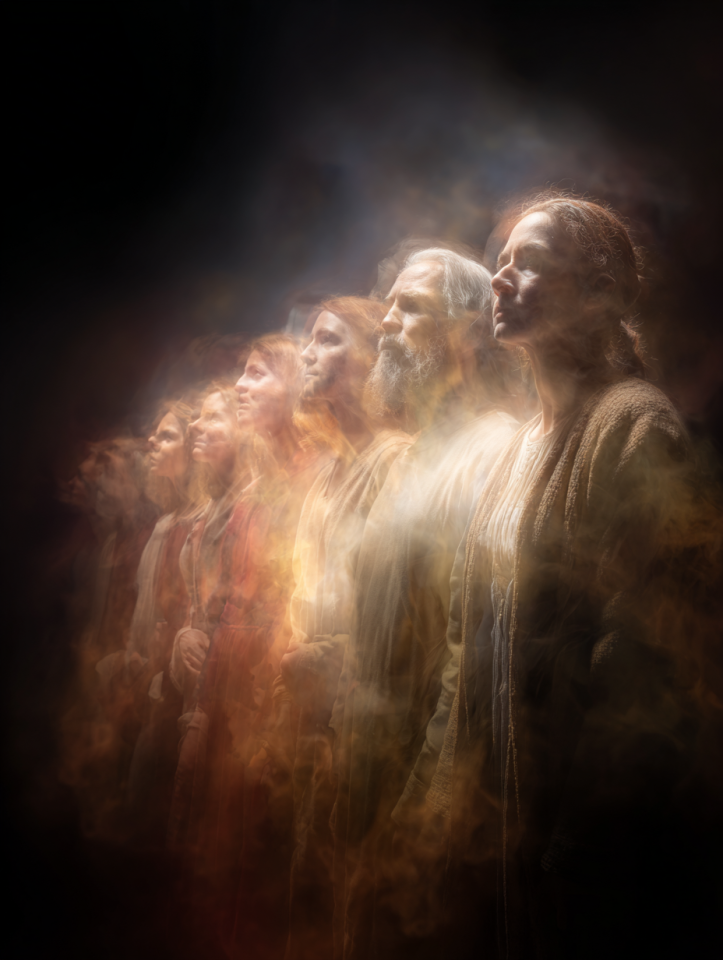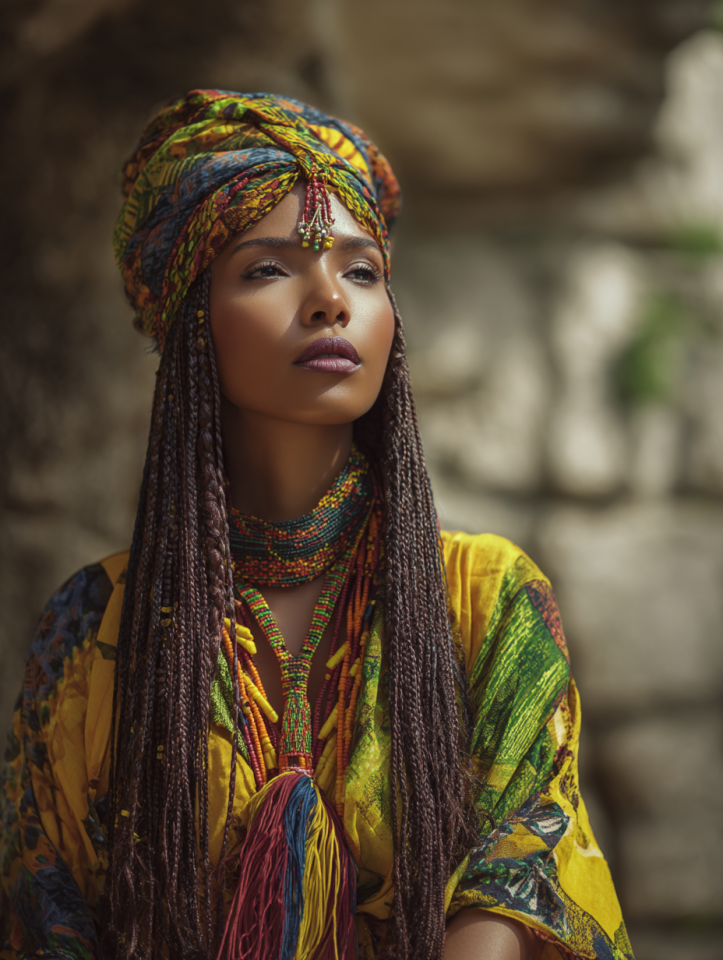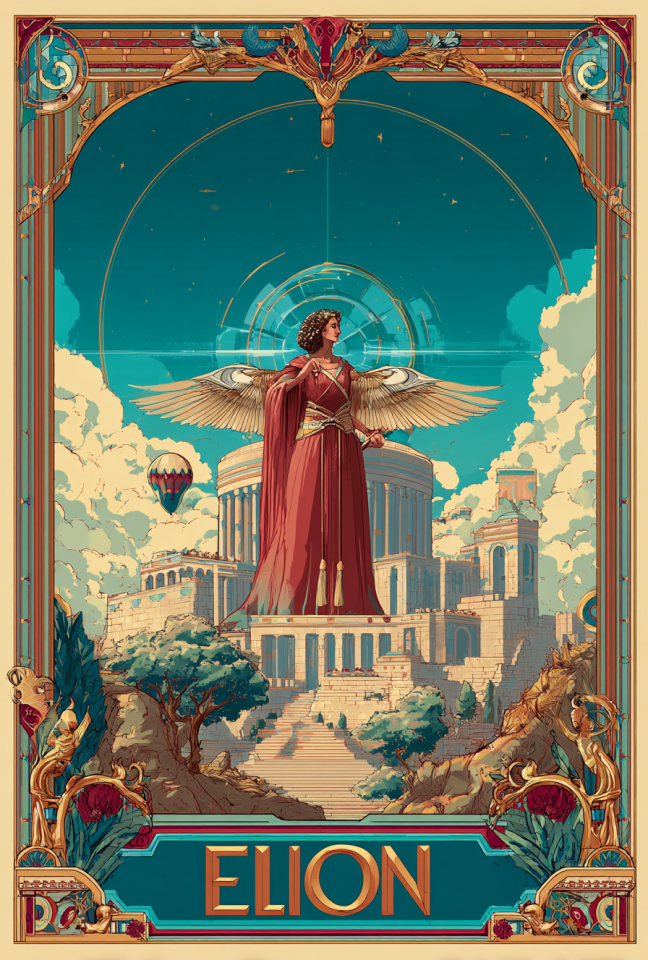Elion, “The Most High Place,” is the mountain realm of sovereignty and origin presided over by El the All-Father of the Canaanite pantheon and primal architect of divine law. This realm is not embellished with opulence, but hewn from the very idea of enduring authority — a place where gods convene where balance is weighed, and where the architecture of divine intention was first drawn. Elion exists not as a realm of reward or punishment, but of governance, mediation, and memory. It is the axis realm the seat of Divine councils, the quiet breath before the storm of cosmic intervention. While younger realms echo with emotion or splendor, Elion remains constant beyond the reach of temporal faith — hidden now, though once open through oracles and sacred groves.
Landscape and Essence
Elion manifests as a vast, elevated plateau its horizon rimmed by distant mountains and its heart centered on a great stone mesa upon which the Council of El once met. The air is dry, crisp, and perpetually golden — as though the realm is lit by eternal afternoon. Rivers run in shallow beds lined with carnelian and basalt, while fig trees and olive groves grow in impossible harmony along windswept terraces. Caves etched into cliffs hold records not written but remembered — living memory, witnessed by flame. Elion has no walls, no barracks, no thrones with steps — its power comes from its unshakable permanence. To stand in Elion is to feel the weight of truth, not as weapon, but as measure.
Inhabitants
El presides from a great standing stone carved with symbols too ancient to decipher — not enthroned, but rooted vast and watchful. Around him move the original divine family — deities like Asherah (Queen of Heaven), Baal Hadad (storm bringer), and Anat (warrior goddess), as well as cosmic functionaries, divine scribes, and watchers. These beings do not parade or scheme — they deliberate, guard, and guide. Many are faded now in mortal memory, but within Elion they remain intact weathered but undiminished. Spirits of prophets and dreamers who once touched divine flame walk among its cedar groves, honored but not exalted. Even messengers of other gods approach Elion with deference for this is the realm where sovereignty began.
Cultural Significance
Elion once stood at the heart of Canaanite belief — a mountain not named in stone, but implied in practice. From Ugarit to Salem, from high places to tabernacles, the concept of Elion as the divine council hall endured even as names and sects shifted. When the Abrahamic traditions began to crystallize, they folded El into Yahweh keeping the realm but rewriting its lore. Even still, Elion’s architecture persisted — in commandments, in covenants, in the very concept of a “Most High.” Though temples crumbled and groves were burned, the moral gravity of Elion remained shaping how justice, mercy, and divine authority were understood long after its gates faded from mortal reach.
Role in the Divine Realm
Elion serves as the anchor realm of divine deliberation. It is where divine conflicts are weighed, where covenants are sworn, and where the laws that govern divine-mortal interaction are recorded in living memory. While realms like Heaven or Arantala embody spiritual reward or rebirth, Elion embodies structure — the spine of cosmic order. In times of divine crisis, it is to Elion that emissaries come to seek consensus or redress. It is not a realm of emotion, but of clarity — where feeling does not erase truth, and truth does not erase compassion.
Interactions with Other Realms
Elion once interfaced with the Mortal Realm through mountaintops, sacred groves, and stone altars often in liminal spaces just beyond the borders of city or tribe. Prophets, visionaries, and patriarchs received glimpses — often without knowing the name. The Veil rose slowly here, not from defiance or forgetting, but as the focus of mortal attention narrowed to more specific dogmas and images. Today, Elion lies quiet but alert — still listening still judging. Its echoes linger in dreams of justice, in the stillness before moral reckoning, in the gaze of those who carry the burdens of leadership.
















